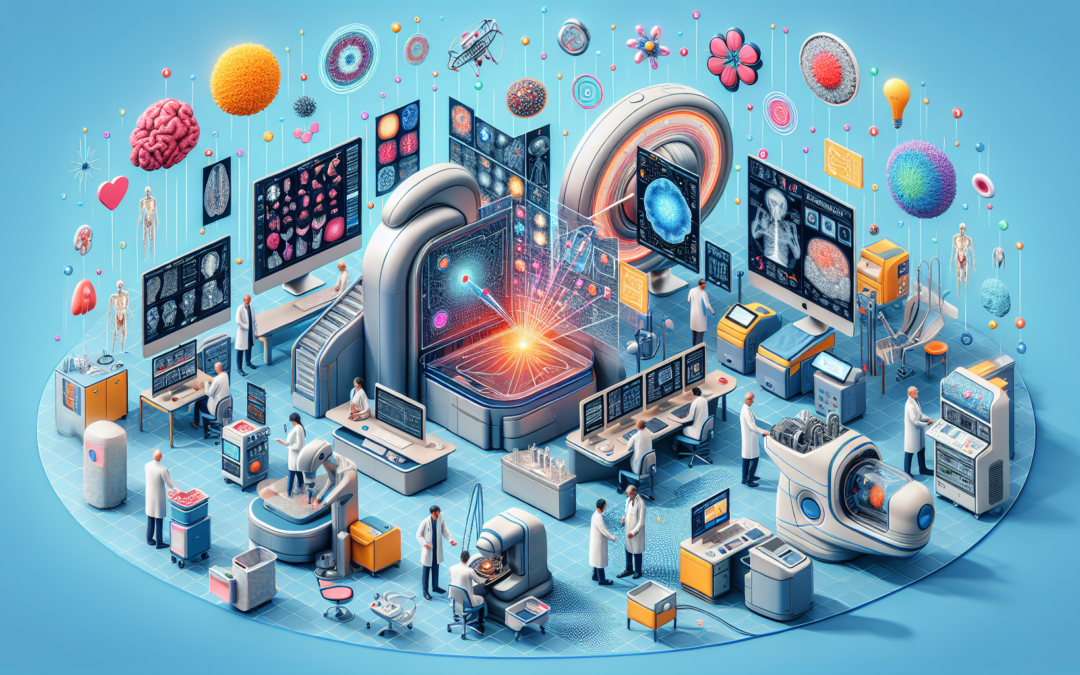Transforming Radiation Therapy: AI’s Role in Personalized Oncological Care
🌟 Radiation therapy is witnessing a remarkable evolution, powered by the transformative capabilities of artificial intelligence. In radiation oncology, AI plays a crucial role in enhancing precision by supporting oncologists in localizing tumors while minimizing the impact on surrounding healthy tissue. AI brings its innovative solutions to the forefront by assisting with tasks from autosegmentation to adaptive radiation therapy — recalculating treatment plans based on daily changes in patient anatomy. This revolution in treatment personalization inspires a future where each plan is as unique as the patient receiving it.
💡Adapting treatment plans to patients’ anatomical and biological changes during therapy lies at the heart of Adaptive Radiation Therapy (ART). This ambitious process involves re-imaging, analyzing, and re-optimizing patient treatment plans. Traditionally a labor-intensive task, ART finds new momentum through AI, allowing for an accelerated and more accurate process potentially achievable directly at the treatment table. This paves the way for delivering precision-tailored therapies with unprecedented accuracy and efficiency.
🤖 The integration of AI in radiation therapy encompasses automating critical tasks like image reconstruction, which reduces both acquisition time and imaging dose, improving daily image quality and allowing efficient recontouring. Furthermore, advancements in deformable image registration provide a quantified view of anatomical changes in 3D, ensuring treatment plans evolve alongside the patient. The synergy between AI and ART enriches the therapeutic landscape, enhancing the care trajectory for patients globally.
📈 Despite AI’s promising contributions to personalized and effective radiation treatment, challenges persist regarding data acquisition, training, and clinical efficacy validation. However, strides are being made daily, as evidenced by a Nature Medicine study highlighting that AI-generated treatments are not only 60% faster but also clinically acceptable. This underscores AI’s growing capability and its burgeoning role in shaping future therapeutic strategies with adaptive precision.
🌱 The realm of radiation oncology continues to grow with collaborative efforts like the Partnership for Online Personalized AI-driven Adaptive Radiation Therapy (POP-AART). This partnership is committed to developing AI strategies poised to enhance imaging and predict tumor changes, indicating a shift toward more dynamic treatment planning. As complexities in computational demands and workflow gradually untangle, AI is on the cusp of making comprehensive adaptive treatment available to a broader patient population, fostering hope and illuminating a path toward more personalized, effective care.
The ideas presented here are derived from the following article: https://www.appliedradiationoncology.com/articles/artificial-intelligence-in-radiation-therapy-adaptive-applications-and-beyond[4]
Inspired by these insights, we’re refining Dr. Persona AI, our AI-powered platform, to deliver a more individualized and impactful Radiotherapy learning experience.
